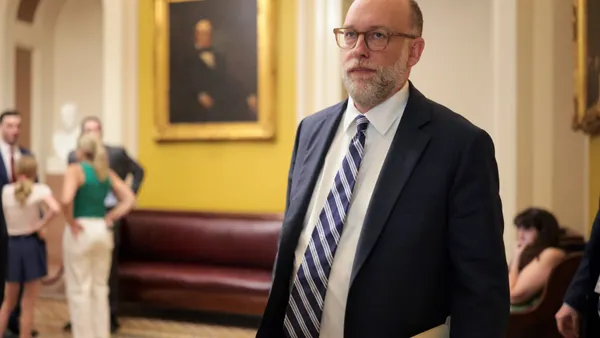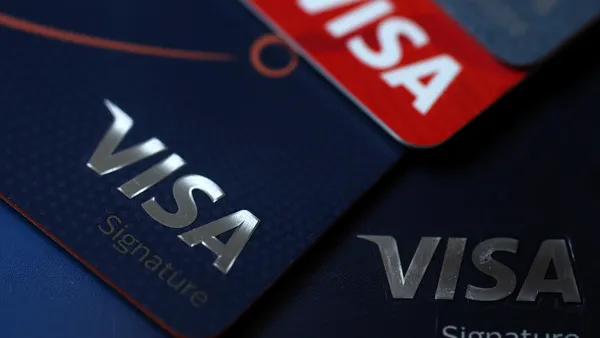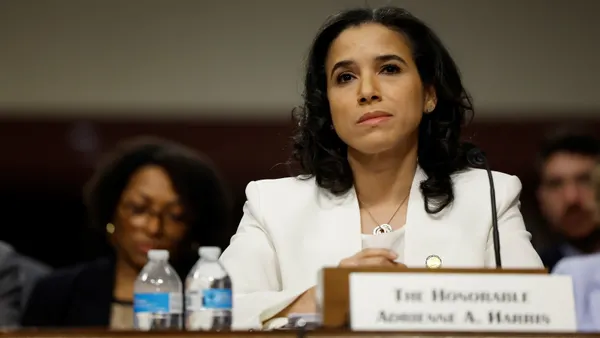Dive Brief:
- Card network behemoth Visa said it appointed a three-person advisory council to guide its Visa Economic Empowerment Institute, which takes policy positions on international economics and payments issues.
- San Francisco-based Visa named former UBS Chairman Axel Weber; United Kingdom House of Lords Member Jonathan Hopkin Hill; and Japan’s former ambassador to the U.K., Koji Tsuruoka, to the new council, according to a press release published last week.
- The inaugural council will provide “strategic guidance” to the company’s policy institute, Kelly Mahon Tullier, Visa’s chief people and corporate affairs officer, said in the Oct. 11 press release. “We are starting with three members, but we certainly intend to grow the council over time,” a Visa spokesperson said.
Dive Insight:
The institute focuses on three main policy areas, including digital equity and inclusion; cross-border and digital trade; and future payments ecosystem innovation. Visa, the largest U.S. card network, aims to amplify the Washington think tank’s commentary in those areas, it said in the release.
Barbara Kotschwar has been the institute’s executive director in Washington since November 2020, according to her LinkedIn profile. That’s the month that the institute was launched, the spokesperson for Visa said.
Recent reports from the institute have included those focused on how public and private sector leaders can drive equitable participation in the digital economy; how governments might design a central bank digital currency; and the costs of international remittances.
Such policy perspectives have become more important in recent decades as the digitization of payments propels new questions about access to electronic payment tools and the regulation of such services. For instance, governments worldwide are developing new guardrails for buy now, pay later options as well as earned wage access choices. International bodies are also attempting to reduce the cost of global money transfers.
On some futuristic payments plays, such as the open banking trend in Europe, Visa and its chief U.S. rival, Mastercard, have diverged in their fierce competition. Meanwhile, Mastercard has been making gains in Europe.
Visa appointing two of three council members in Europe, and none in the U.S. for now, could indicate something about the company’s international growth goals. Visa CEO Ryan McInerney, appointed earlier this year, has outlined worldwide expansion opportunities.
While Visa’s 61% share of the $9.56 trillion in credit and debit card purchase volume last year continued to dwarf No. 2 Mastercard’s 25.5%, the latter is growing at a faster rate, or shrinking less, based on data from industry research firm The Nilson Report.
Mastercard’s credit card volume rose 47 basis points last year over 2021 while Visa’s declined 59 basis points, according to Nilson. With respect to both credit and debit cards, Visa’s share shrunk at a higher 61 basis points rate while Mastercard’s slipped just 18 basis points.











